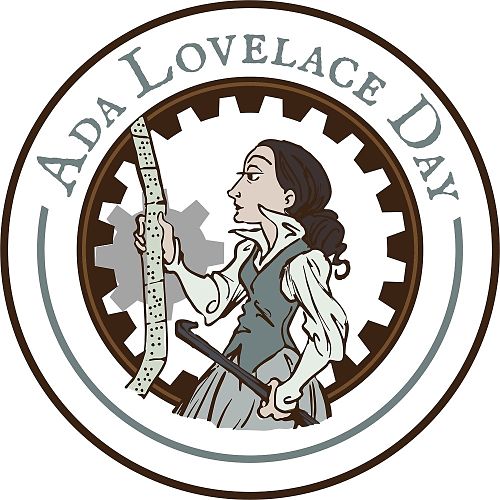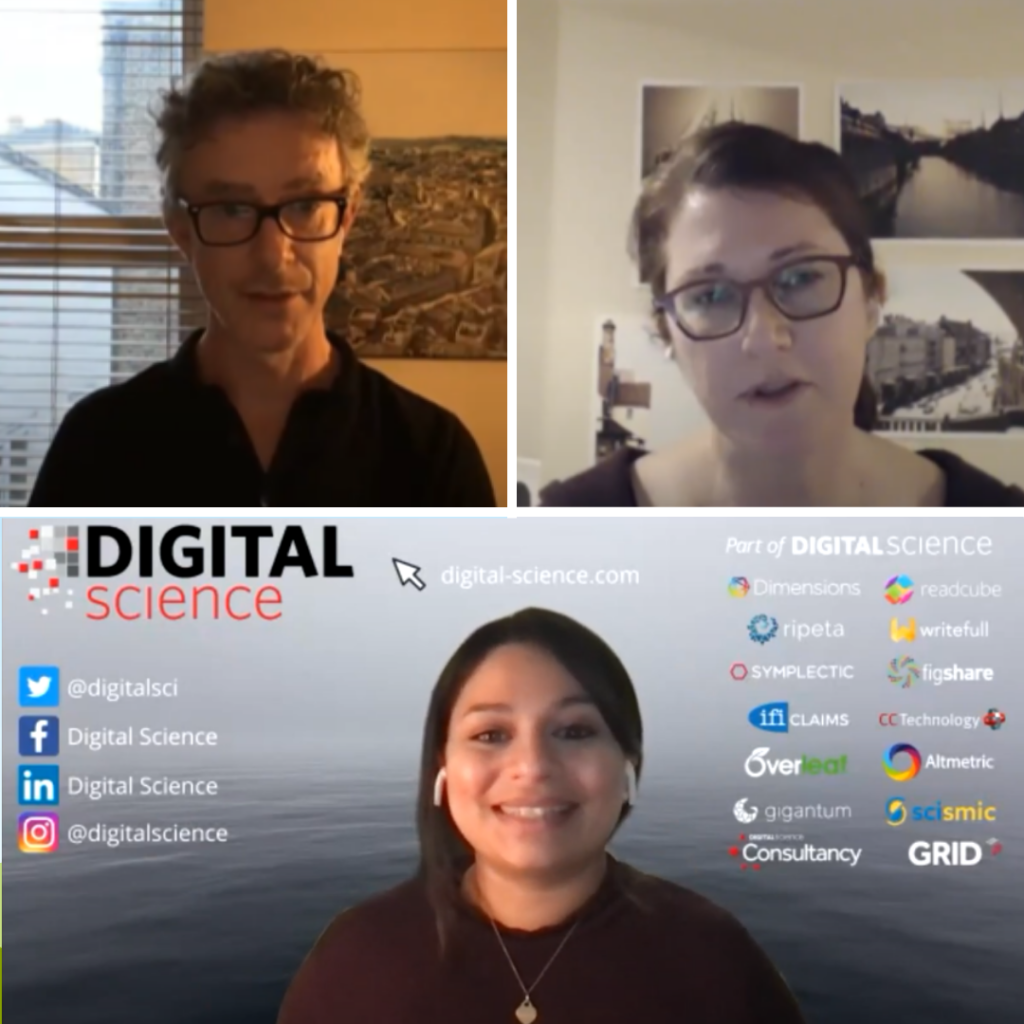Subscribe to our newsletter
Breaking barriers through progressive partnerships
At Digital Science, we push for and actively support a research culture that is as open and inclusive as possible for everyone, through our software solutions and the work that we do. As one of the founding partners of the Research on Research Institute (RoRI), we work with a global network of organisations to identify barriers to inclusion in research at all stages and levels, and experiment with novel and innovative solutions designed to break down these barriers.
Research culture must be inclusive for a number of reasons. If the end goal is to improve people’s lives, we must understand the broad demographic nuances of the society we are helping. This requires both engagement with the public to understand their needs and challenges, and representation from people of all backgrounds and lived experiences in research. Only then can we fully understand what research must be carried out, what impact this could have, and how easily it could be adopted by people.
Recruiting and retaining a research workforce
The research workforce currently does not accurately reflect or represent all of society, with a wide range of groups underrepresented in research. Our work with RoRI looks at how we can improve research culture by analysing career progression pathways, looking at how research success is measured, and by critically examining established processes, such as obtaining grant funding and navigating the peer review process. However even at this stage, much of RoRI’s work relies on researchers having joined the profession in the first place, and for them to have remained long enough to have published their work. How can we encourage people to work in, and remain working in, research?
One way we support the next generation of researchers is through our community partnerships. We work with organisations that support and mentor the researchers and innovators of the future. Let’s shine the spotlight on three of our partners, and the work that they are doing.
 Ada Lovelace Day
Ada Lovelace Day
Ada Lovelace Day has been a member of the extended Digital Science community since 2015 when it was awarded one of our Catalyst Grants. It is an international celebration of the achievements of women in science, technology, engineering and maths (STEM). Its goal is to increase the profile of women in STEM, create new role models showcasing STEM careers, and support women already working in STEM. The day itself takes place in October and usually features a live cabaret show of STEM role models in London, along with several global satellite events taking place on the same day.
Given that live events are not ideal in this current climate, not only have the team pivoted to a series of practical online offerings throughout the year, they have also been working hard on developing their mentoring platform, the Finding Ada Network. We have continued to sponsor Ada Lovelace Day and are thrilled to see that their latest Finding Ada Conference had more than 720 registrations. Attendees spent on average over six hours logged in, which is testament to the organisers and their ability to create a useful and engaging programme including Elisabeth Holm, Jannie Fernandez and Lauryn Mwale who discussed how to run coding workshops, Gillian Hunt who spoke about leadership and developing talent, and Margaret Dawson who shone a light on where to start with equity, diversity and inclusion initiatives to make the most positive impact.
 The STEM Fellowship Big Data Challenge for High School students and Undergraduates
The STEM Fellowship Big Data Challenge for High School students and Undergraduates
STEM Fellowship is a Canadian charity that empowers young innovators through ‘crowdsourcing science’. As digital literacy and data analytics become increasingly essential to all researchers, the charity’s Big Data Challenge offers teams of both high school and undergraduate students hands-on opportunities to engage with data science, and work with a team of mentors to solve real world challenges, learning about data citizenship as they work. These competitions allow students to learn and apply some of the fundamental principles of data analytics and communicate their work to a range of audiences. The Big Data Challenge fosters social entrepreneurship and innovation, and gives students a chance to contribute to a more sustainable future for all through data analysis.

In 2021, like so many other programmes, the High School Big Data Challenge was conducted entirely online and focused on inequality in education. However, that didn’t stifle the innovative potential of participants. The Digital Science Excellence In Analytics Award for their project on Educational Inequality Between Urban and Rural Areas was awarded to Joshua Lakdawala and Yash Jagirdar. Check out their manuscript and video for inspiration.
The Undergraduate Big Data Challenge had participants from 34 post-secondary institutions across Canada, including some international institutions such as the University of Hong Kong, the University of Texas at Austin, and more. 100 teams and 309 participants took part in projects focused in infodemiology for the future of digital and public health, with 40% of the participants identifying as female. Data science is a research field in which women are historically underrepresented. It is hoped that initiatives like this will go some way towards eliminating this gender imbalance.
Following on from the Undergraduate Big Data Challenge, the winners of the Undergraduate Big Data Day were announced earlier today, with winners of the Outstanding Science Communication Awards sponsored by our friends at Overleaf.
![]()
The NISO Plus Scholarship
The National Information Standards Organization, or NISO, is a not-for-profit membership organisation responsible for the management of information in all aspects of data, including those that underpin research infrastructures and scholarly communications.
NISO initially created a scholarship in 2020 to actively encourage underrepresented parts of the data and research information community to attend the NISO Plus conference. It’s aim was to have everyone’s thoughts and views represented in discussions and future work, and to learn from and better understand the challenges and successes of a broad range of communities and use cases. Though initially created to boost conference participation, the programme has expanded to include practical workshops, networking opportunities and mentoring schemes. Digital Science sponsored the 2021 scholarship, seeing the programme as a great example of how to continue your networking and professional development even during a pandemic. The scholarship supports 15 individuals from across the world, each working towards greater data citizenship and a more open and collaborative information ecosystem for all.
Alice Meadows, Director of Community Engagement at NISO, says: “In early 2020, as part of our commitment to improving diversity, equity, and inclusion in the information community, we launched the NISO Plus scholarship program. With support from the Sloan Foundation, the scholarships were originally intended to enable individuals from un- and under-represented parts of our community to attend the in-person NISO Plus 2020 conference. But we quickly realized that we could – and should – do much more to support the scholarship winners on an ongoing basis.
“We were incredibly impressed by how engaged our first cohort of 12 information professionals were during the conference, and how enthusiastic they have been about continuing to engage with us since then — including participating in this year’s conference as Planning Committee members, speakers, and moderators, as well as joining our Education Committee and our newly formed DEI Committee. Some also helped select this year’s cohort of 15 scholarship winners (sponsored by Digital Science) who, I’m delighted to say, already look to be every bit as engaged and engaging as the first! They’re also even more international, hailing from Australia, Hong Kong, India, Kenya, The Netherlands, Romania, Uganda, and the USA.
“It is a pleasure and a joy to be connected with such a wonderful group of individuals from around the world — and to be able to connect them with each other and with the wider NISO community!”
We are certainly looking forward to seeing what these 15 winners do next!
Do you help support a more inclusive research culture? Tell us about it!
Through supporting scholarship programmes and mentoring schemes, Digital Science is playing a small part in helping make research more open, inclusive and collaborative. However, to truly nudge research culture towards a more positive direction, we must continue to support people at every stage of their careers, and to provide opportunities where we can hear from everyone about the challenges they are facing, so that we can tackle them together.
Are you taking part in a scholarship programme or mentoring scheme? Would you like to shout about it? Perhaps you are running a scheme of your own. Let us know about it and we’ll help amplify your message and share your successes. Together we can make open, collaborative, and inclusive research possible.
